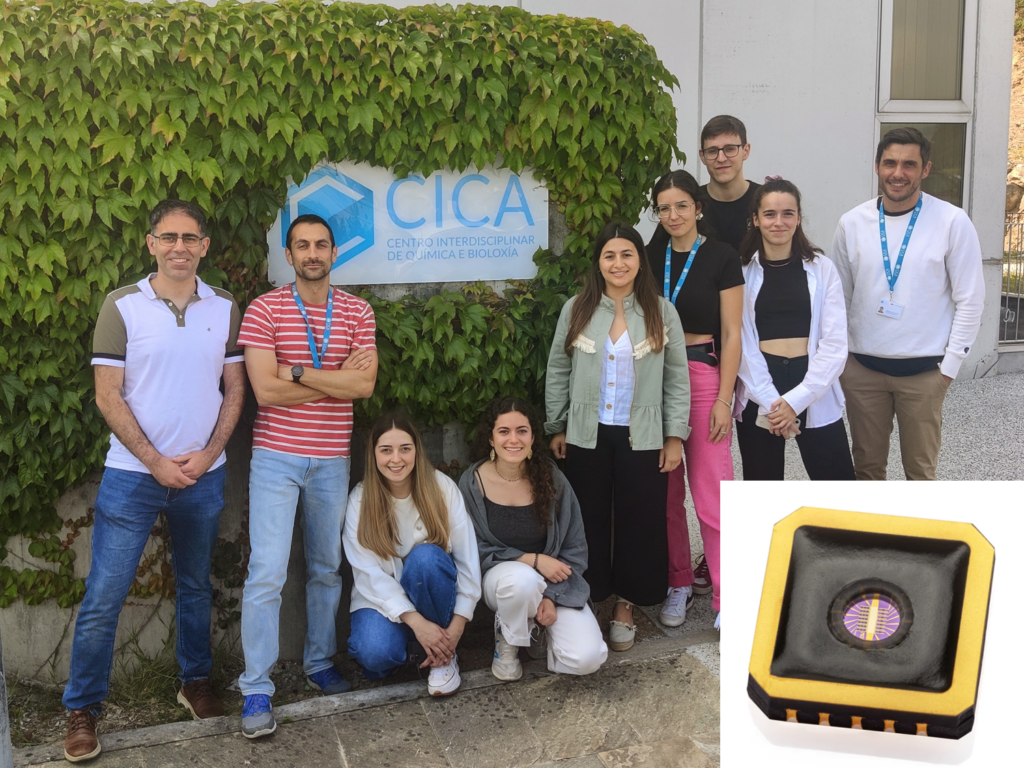The international project FLUFET will be coordinated by Dr. Alejandro Criado’s group from the CICA-UDC and it aspires to obtain more than 3.2 M€ in funds
Zoonotic infectious diseases (diseases that jump from animals to humans) are on the rise, and the risk for a new pandemic is higher than ever. Future healthcare models must take the close relation between animal and human health into account, and new technologies are urgently needed in order to keep a close and continuous watch on places where the risk of pathogen transmission is highest (places shared by animals and humans) in order to avoid the human, sociopolitical and economic costs of a new pandemic.
“One Health” is a global iniciative that advocates for the collaboration between human health, animal health and enviromental professionals with the purpose of facing the challenges all of these sectors face in an interconnected way. Their goal is to understand and prevent zoonotic diseases and to promote a holistic focus on global health.
The European Parliament demands a continuous watch and a harmonized compilation of data of animal exploitations. However, the current methods are not adequate for the “in situ”, continuous and automated detection, hence why nowadays only a limited number of specific, known pathogens are controlled.
NanoSelf, the group belonging to the Centro Interdisciplinar de Química e Bioloxía (CICA), which is a part of the UDC and is lead by Dr. Alejandro Criado, has been selected to coordinate an EIC Pathfinder project, with more than 3.2 million euros in order to develop the FLUFET system.
FLUFET will be the first automated sensor capable of continuously detecting a wide spectrum of viral items, with the unprecedented capability of detecting unknown viruses. This sensor will be based on Graphene field-effect transistors (gFET). FLUFET will detect infectious zoonotic threats before they propagate to humans, creating potential outbreaks, opening the door for the continuous prevention of possible pandemics.
FLUFET stands for “FLow detection of virUses by graphene Field Effect Transistor microarrays”
Field Effect Transistor microarrays are devices that allow for the detection of molecules of interest (proteins, nucleic acids, viruses, etc…) and they are based on changes in the conductivity of graphene sheets, due to interaction with these substances or other chemical compounds that stem from these chemicals. Meaning, when this graphene based vanguard sensor locates a virus or a part of it, it will give us a specific signal we can study.
FLUFET brings interesting oportunities to experts and managers in health and pandemics, political figures and regulatory/normalization bodies, farmers and their associates, precision farming solutions providers, investors and researchers within the multiple disciplines that participate in the consortium.
The project requires an interdisciplinar consortium which includes the fields of computational biophysics, graphene tech, nanotech, detection, microfluidics, virology, surface engineering and electrical/sensor design. Due to this, from A Coruña, Dr. Criado will be coordinating the Spanish, Italian, Portuguese and Finnish teams that participate in this project.
The main participants are, on top of the Centro Interdisciplinar de Química e Bioloxía from the UDC, the Fundación BCMATERIALS – Basque Centre For Materials, Applications and Nanostructures – Bilbao, the Asociación Centro de Investigación Cooperativa en Biomateriales – CIC BiomaGUNE – Donostia-San Sebastián, the International Centre For Genetic Engineering and Biotechnology – Trieste, Italy, the company Graphenea Semiconductor SL – Donostia-San Sebastián, the Laboratorio Ibérico Internacional de Nanotecnología LIN – Braga, Portugal and the Teknologian Tutkimuskeskus VTT OY – Espoo, Finnland.
Original article: La vanguardia tecnológica que vigila la salud mundial ante virus desconocidos coordinada desde A Coruña (19/10/2023)
For BIOGA, it is a priority to promote intersectoral collaboration between entities and to power networking activities, both national and international. If you want to know more about us, please click the following link.
- Innopharma grows their capabilities to improve Spanish biotech
- Qubiotech comercializes software capable of analyzing brain imaging automatically
- CiMUS and ABAC Therapeutics makes inroads in the fight against antibiotic resistant bacteria
- Innovation with Galician DNA: KeyBiological uses ozone to create highly effective cosmetics
- Galician biotech ecosystem seals collaboration alliances with the bioregions of Japan and the United Kingdom
- Ayming Meets: Entrepeneurship in the biotech sector with Virginia González
- The Xunta promotes the new In Proteins for All biotech plant in Curtis
- AINIA and MAPA propell the development of startups in the agri-food biotech sector
- Ecocelta patents Europe´s first ever mascot sand made of mussel shell
- AMSLab incorporates their five firsm into BIOGA as a “commitment with Galicia’s biotech ecosystem”.

